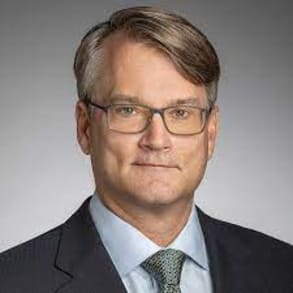Meet Dr. Thomas Crum, as he explains what Neuropsychology is and what led him into this field. He also discusses how he approaches the care of his patients and how this field is evolving.
Hello, I'm Thomas Crum. I'm a board certified neuropsychologist uh at Centa Neurology Specialist in Hampton, Virginia. As a neuropsychologist, I am trained in uh administering and interpreting brain related tests, memory tests, uh different cognitive tests, um and being able to look at those tests and helping the neurologist and and the patient really identify what may be playing a role in, you know, their memory problems or their concentration problems. One of the things about Sana when I came in, um I saw a very large group of people who really liked each other and really worked uh cared about the patients and really worked towards providing that care. Um They have quite a few projects upcoming that really exemplify that idea that they, they care about the patients and the patients families. My first introduction to neuropsychology was one of my professors in undergrad. He was working to decode the neural pathway from the ear to the brain and started studying under him and found it very interesting out of undergrad. I began working with individuals with brain injury attempting to help them rehabilitate to get back into the workforce. Um Since then, I've worked in rehab settings um and memory disorder clinics uh with professional football teams really helping them develop um strategies to help the patients and help the individuals really overcome whatever deficits they have to become the highest level of functioning that they can. Usually when I first uh have a patient come in, I spend quite a bit of time really looking through their medical records, try to identify any medical issues that they may be having. Um looking for any sort of previous evaluations that they had that can help really formulate an idea or hypothesis before they come in. Um But once they come in, it's really where things start. I, I ask uh many, many, many questions. There's a very extensive interview process really trying to identify what's going on uh starting back from childhood. Um Is there any psychiatric issues? Is there any um developmental issues, relationship issues, family issues that could be contributing? Um Also the neurologic issues, the medical issues that could be playing a role? Um Once that has, once the interview is complete, then I really have a much better idea of which areas of the brain I need to focus on the assessment. We usually do 234 hours of, of cognitive assessment at that time. Um At the end of that assessment, we usually have about an hour, hour and a half feedback session where we can go over the results and really show the patient, this is how you're doing this is what has affected your performance on these cognitive tests. Um And it really allows the patient to have uh hands on um ability to look at what we just did, what it meant to them and, and how it could really play out in their lives in their daily life. The two biggest things that are happening right now in the field. Um One is the treatment for Alzheimer's disease. Uh the treating of beta amyloid and CTERA is involved with the clinical trials of that. Um They are just starting now. Uh There is some positive outcomes with that. Um And I think as a group, everybody is very much involved in, in trying to work towards any sort of treatment or cure for any sort of disease. Um But that is the one that I think is more prominent right now. The second uh area is one of the projects I mentioned before is the caregiver support and education program that they're developing. Um It is just now starting to take off and it is for individuals who are caring for somebody with a dementia. Um which right now in the community, there's there really is no support for family members. Um but they really need that support, they really need the education and they really need the help.
Related Presenters
